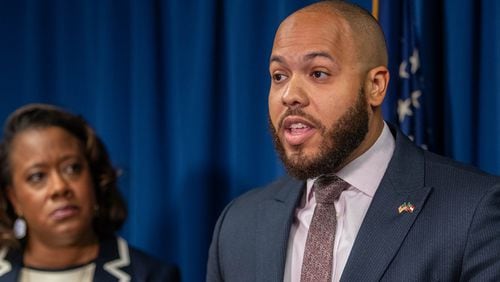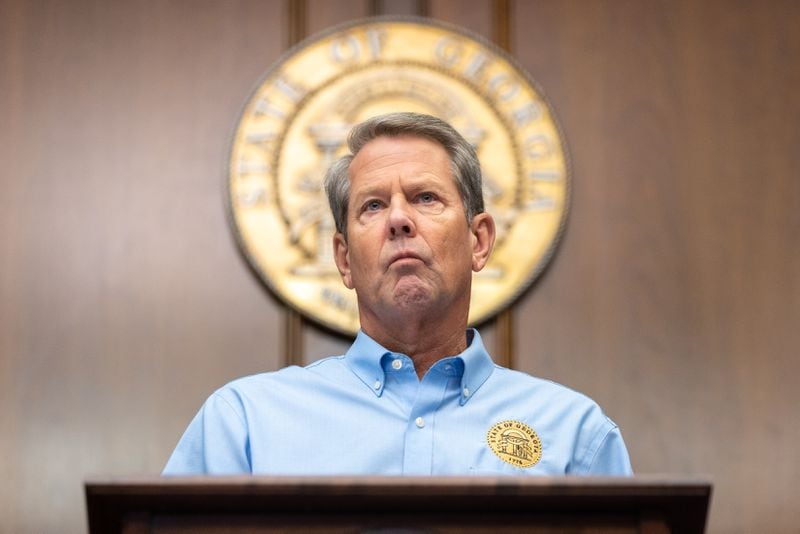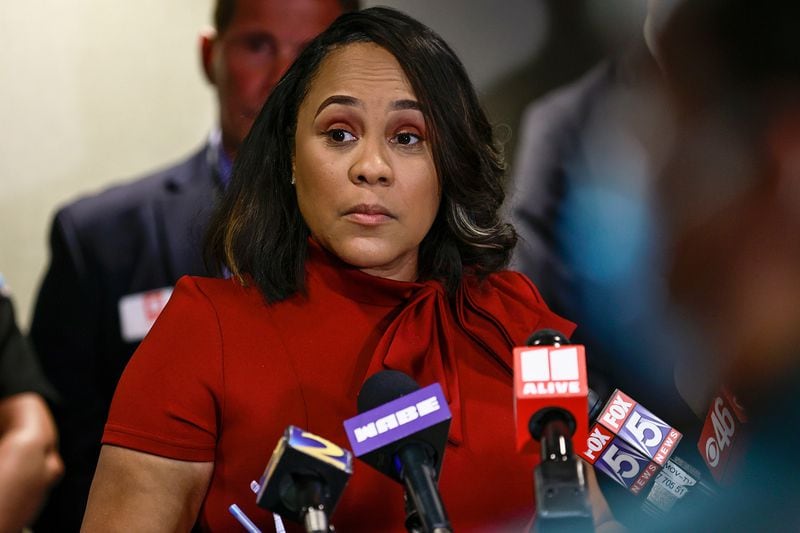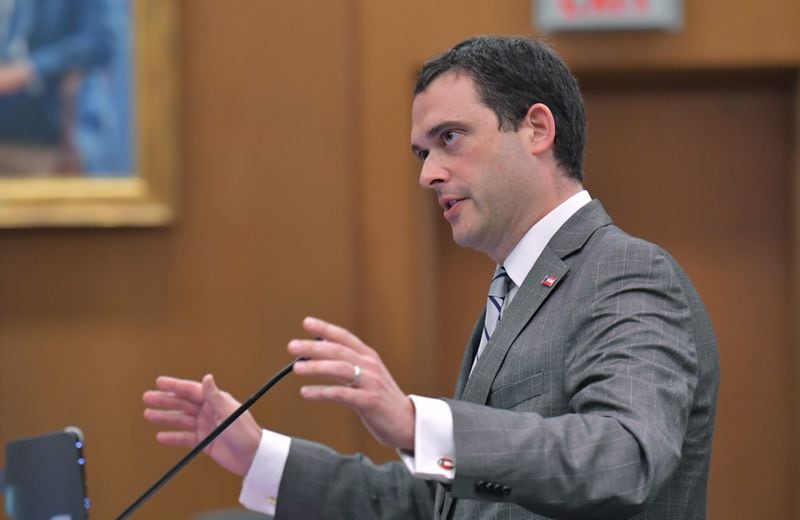A new Georgia commission with broad powers to discipline local prosecutors accused of failing to fulfill their legal duties can soon begin accepting formal complaints after a judge rejected a challenge from district attorneys who sought to block the law creating the panel from taking effect.
Fulton County Superior Court Judge Paige Reese Whitaker on Friday allowed the Prosecuting Attorneys Qualification Commission to begin accepting complaints on Sunday that could lead to sanctions or even the ouster of district attorneys and solicitors.
The decision opened the door for allies of Donald Trump to try to use the commission to punish Fulton County District Attorney Fani Willis after she brought an indictment against the former president, even though Gov. Brian Kemp and other Republicans have said there’s no evidence she should face sanctions.
In a six-page order, Whitaker shot down arguments from a bipartisan group of district attorneys who argued legislators overstepped their authority by establishing the panel. Among other critiques, the judge found that the plaintiffs failed to prove that blocking the law would prevent an “immediate and irreparable injury.”
The law is among a spate of Republican-led efforts nationwide to exert more control over liberal prosecutors they view as “rogue” because they refuse to enforce low-level drug offenses, anti-abortion restrictions and other tough-on-crime crackdowns.
But the Georgia measure has attracted outsized attention because some Trump allies have vowed to use the new commission to seek sanctions against Willis after she secured an indictment against the former president and 18 co-defendants.
Credit: arvin.temkar@ajc.com
Credit: arvin.temkar@ajc.com
Kemp, the law’s chief supporter, has spoken out against Trump allies who have talked about weaponizing the new commission against Willis, saying he’s seen no evidence that the Democratic prosecutor should merit the panel’s scrutiny.
Even so, several GOP state senators have urged their constituents to immediately file complaints against Willis through the panel, alleging that she is misusing public resources by pursuing the election interference case.
State Senate Majority Leader Steve Gooch said in a recent interview that the commission “will give people the opportunity to file a complaint to take the politics out of it more than trying to have an impeachment hearing” seeking Willis’ removal.
Other Republicans have gone a step further. State Sen. Clint Dixon told the AJC that he would file a complaint against Willis himself, saying she pursued the indictments with the “unabashed goal to become some sort of leftist celebrity.”
Willis, who wasn’t a plaintiff in the lawsuit, has criticized the law as a brazen Republican attempt to exact revenge over a wave of left-leaning prosecutors recently elected to office. She has repeatedly said she’s followed the law in seeking charges against Trump and his allies.
Credit: TNS
Credit: TNS
‘Will of the people’
The legal challenge was brought by four district attorneys — three Democrats and one Republican — who view it as an unconstitutional power grab that threatens their ability to choose which cases to pursue and how they discuss their strategy in public.
Known as Senate Bill 92, it was approved along party lines by the General Assembly earlier this year after Kemp put it atop his policy agenda in his first legislative session after his reelection.
He vowed to punish “far-left prosecutors” he accused of undermining public safety, including a district attorney in his native Athens-Clarke County who won her election on a platform of prioritizing violent crimes over minor drug offenses.
The law allows the commission to sanction or remove district attorneys for a range of causes, such as “willful misconduct” or “persistent failure” to follow the law. A five-member panel will investigate complaints and decide whether to bring formal charges, and a separate three-member panel will issue orders and opinions. Kemp and GOP legislative leaders appointed the panels earlier this year.
Still, it’s unlikely the commission will soon issue any sanctions. It still must put forth a series of rules and regulations before weighing any complaints. And its members have indicated the panel can’t discipline a prosecutor until the Georgia Supreme Court approves its rules.
Attorney General Chris Carr, a Republican whose office defended the new law in court, praised the judge for reaffirming that “district attorneys who choose to violate their oaths will not be immune from accountability.” The plaintiffs vowed to fight on.
“While we are disappointed that our motion was denied, this is just the beginning of what we expect will be a long legal battle,” said DeKalb District Attorney Sherry Boston, adding that she plans to ultimately bring the case to Georgia’s top court.
Credit: HYOSUB SHIN / AJC
Credit: HYOSUB SHIN / AJC
The judge’s ruling comes as little surprise, as she seemed skeptical of the challenge at a Sept. 22 hearing. Josh Rosenthal of the Public Rights Project urged her to block the law because some prosecutors have already changed their policies over fears they would be second-guessed by the panel.
One example: Jonathan Adams, the Republican district attorney in a cluster of Middle Georgia counties, said he has withdrawn a policy that he will not prosecute adultery, which is still a misdemeanor under state law. Adams is among the plaintiffs who brought the lawsuit.
Josh Belinfante, an attorney for the state, argued that the new commission is expressly authorized by the state constitution and noted that judges, too, are subject to discipline from a similar commission.
“It seems to be a misnomer that this is some partisan witch hunt against prosecutors,” Belinfante said.
In her ruling, the judge found that many of the plaintiffs’ claims were based on “unspecified future harm” rather than the threat of imminent or actual injury. And she rejected arguments that the law violated the public’s trust.
“The public interest is served by allowing the defendants to perform their duties,” Whitaker wrote, adding that a law passed by the Legislature and signed by the governor “represents the will of the people.”
About the Author











